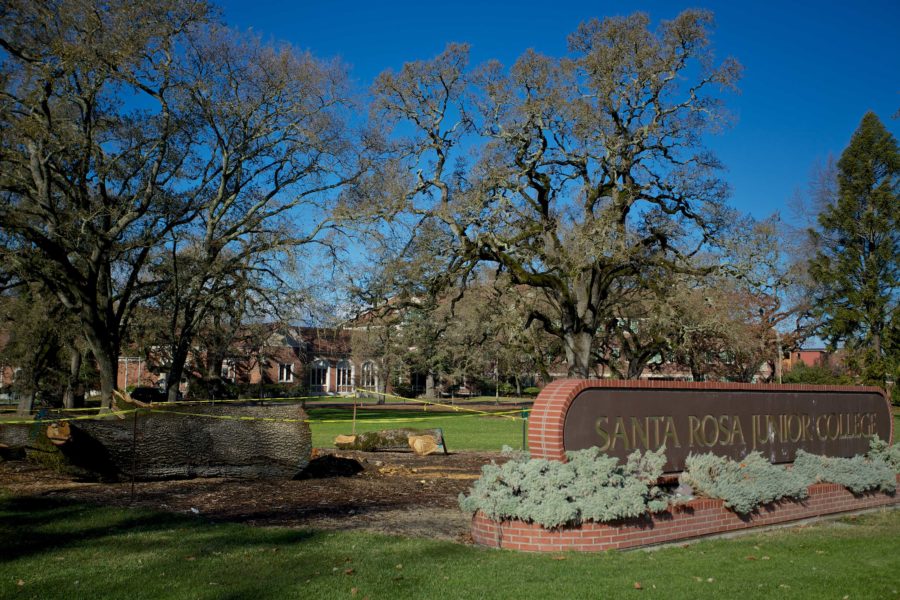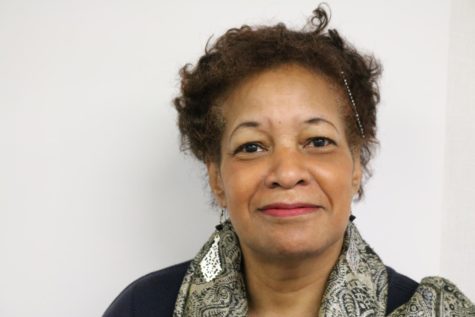“What serves black and chicano students serves all students,” according to Thomas Brown. “Have there been bumps in the road? Absolutely. I’m not your ‘typical Negro.’ Like Malcolm X said, ‘if you’re black and not angry, you’re crazy!”
Brown, an educator and consultant for nearly 500 institutions in Napa & St. Helena as well as in the U.S. and abroad, was a panelist in a discussion on “Race, Ethnicity & Gender in American Culture,” hosted by the Black Student Union recently and moderated by Superintendent and President Dr. Frank Chong. The other panelists were Dr. Joi Lin Blake, Superintendent and President of Palomar College & Greg Granderson, retired SRJC Dean. February was Black History Month and all panelists were African American. Every seat in the house was taken. The audience was racially mixed with a significant majority of Black students.
The discussion focused on what it is like to be African American as an educator/administrator in higher education. Dr. Chong opened the conversation and asked each speaker to give a summary of their own personal/professional background. He later shared, “I was thrilled to have these three close friends and colleagues share their insights and wisdom with our students, faculty and staff.”
Dr. Blake began by sharing that prior to her current position, her background included serving in the Obama administration, as did Dr. Chong, in 2012 in Washington, D.C. “I was a military kid, spending some time in Japan,” Blake said. “The GI bill paid for my college education, where I saw how I could impact change. I was very inquisitive & bilingual. As an activist I was always speaking out and pushing the envelope for students of color. I had to learn how to navigate sometimes being the only black administrator, which was a challenge. A code phrase I’m used to is ‘You’re so articulate!’”
Blake continued, “What I’ve learned is how to stay focused on my core values and serve students, while breaking the proverbial glass ceiling.” She added, “I’m very close to Frank. He could get a call at 6 a.m. from me. What I have to focus on is how to navigate being the only one.”
Granderson explained his experience with SRJC, where his wife was also on the faculty. “Dare to struggle, dare to win,” was his motto, said Granderson. “Sometimes you have to push the proverbial envelope against the status quo.” He is also a member of the local Sonoma chapter of 100 Black Men. “Whatever you choose, it’s to your benefit to get a job and get into the system,” he told the group of over 100 guests.
Brown shared his background as a black activist including his time with the Black Panther Party.
“You’ve got to build a network of support from family and friends. Stay engaged in the community and seek leadership positions,” Brown said.
“Remember where you are as a student and where you come from as a people.. “You need to be able to say ‘no’ when you have to.” A native of Oakland, his family background includes Cuban and Mexican, and he was an assistant dean at Berkeley High and at Merritt College.
There was a short question and answer period. Dr. Chong framed the conversation around the impact that being black has on the lives of the panelists. He later stated, “I was thrilled to have three close friends and colleagues share their insights and wisdom with our students, faculty and staff. All three individuals have had a profound impact on my professional and personal growth and I am glad they were able to share their knowledge with the community and that they received very positive feedback from all of the attendees.”
“I think they served us by being courageous and it’s been a great conversation!”





Anthony • Apr 4, 2017 at 3:36 pm
Well written and described wondefully and I got the scope and essence of the meeting and message.